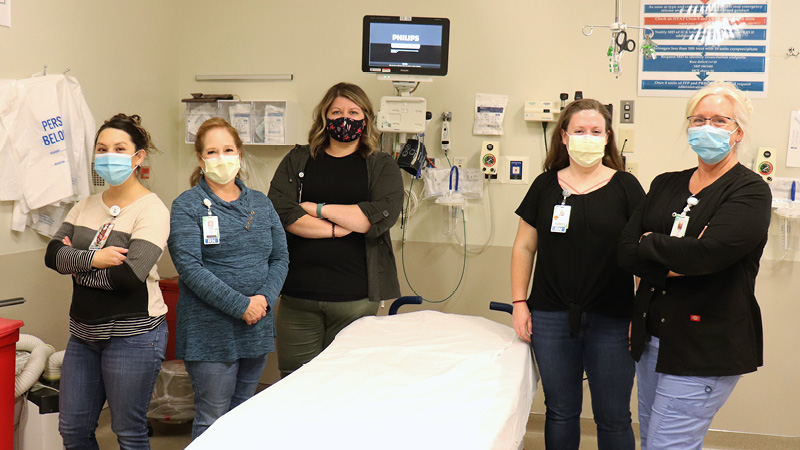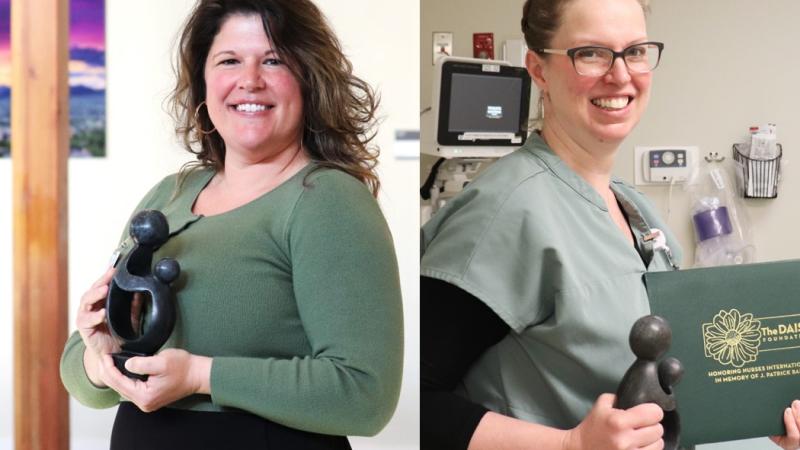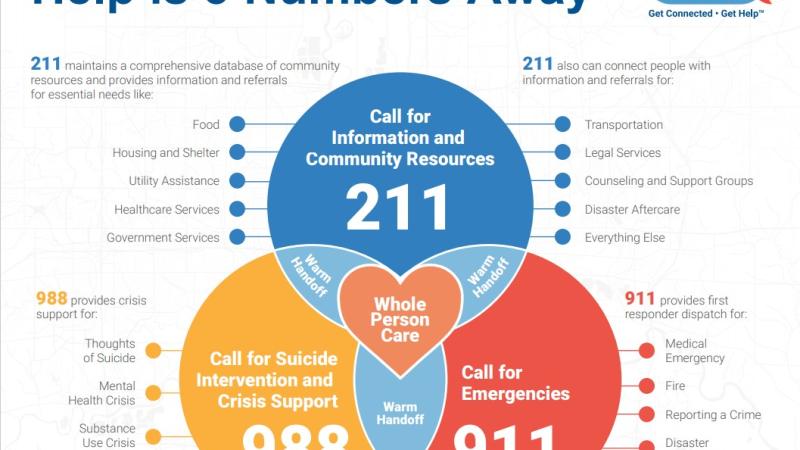
April is National Sexual Assault Awareness Month. St. Peter's Health Emergency Department sexual assault nurse examiner (SANE) registered nurses are committed to caring for victims of sexual violence in our community and connecting them with important people and places like The Friendship Center and the Lewis and Clark Child Advocacy Center.
April 29, 2022
According to the Rape, Abuse and Incest National Network (RAINN), sexual violence is defined as an all-encompassing, non-legal term that refers to crimes like sexual assault, rape or sexual abuse and intimate partner sexual violence. It can occur any time a person is forced, coerced, and/or manipulated into any unwanted sexual activity. Montana’s criminal code defines sexual violence as sexual assault, sexual intercourse without consent, aggravated sexual intercourse without consent and indecent exposure. Anyone can be a victim or perpetrator of sexual violence, regardless of gender, age, race, sexual orientation, socioeconomic class, ability/disability, religion or community. The sad reality for many victims is that their perpetrator is someone they know.
Nationwide sexual violence statistics
Every 68 seconds a person is sexually assaulted in the United States. According to RAINN, one out of every six females and one out of every 33 males has been a victim of sexual assault. Some populations are at an even higher risk of experiencing sexual violence including the elderly, children, people with disabilities, military members, inmates, members of the LGTBQ+ community, transgender and different races including Native Americans. Unfortunately, sexual violence is a highly underreported crime, which also affects statistics.
Sexual violence locally
Sexual violence is absolutely an issue we face in our state and community. In 2019, according to the Montana Department of Justice, there were over 600 reported sexual assaults in the state of Montana, resulting in a state rate of 58.4 per 100,000 residents, which is higher than the national rate of 42.6 per 100,000 residents. In 2016, the State of Montana Department of Health and Human Services (DPHHS) reports showed that 9.3% of Montanans reported that someone had attempted to have sex with them after they said or showed that they didn’t want to; and 8.9% of Montanans reported that someone had completed sex with them after they said or showed that they didn’t want to.
How can we help prevent sexual violence?
Many victims of sexual violence experience harmful and long-lasting health concerns. To prevent sexual violence in our community, we have to understand the risk factors linked to sexual violence. Important prevention strategies include reducing the likelihood that a person will engage in sexual violence. The acronym “STOPSV” outlines this strategy, which includes promoting (S) social norms that protect against violence, (T) teaching skills to prevent sexual violence, providing (O) opportunities to empower and support females, creating (P) protective environments and (SV) supporting victims and survivors to lessen harm.
What to do if you have experienced sexual violence
If you or someone you know has been a victim of sexual violence, we encourage you to seek medical attention right away. Many emergency departments across the state have specially trained medical professionals available to care for you. Before going to the emergency department, it is important to limit any hygiene activities, including showering, bathing, washing your hands or brushing your teeth. If you are a victim of sexual violence, do not change, wash or destroy your clothing. If you do remove your clothing, be sure to use a paper bag to bring the clothing to the hospital with you so that DNA evidence is not destroyed. After a medical evaluation, they may educate you on medications that can prevent sexually transmitted disease and HIV, emergency contraception and immunizations as indicated. Specific to those 18 years-of-age or older, you may seek medical attention and not report your experience to law enforcement. If the assault has taken place within the last 5 days or 120 hours, and you provide consent, you will be eligible to have a forensic medical exam completed by specially trained nurses called sexual assault nurse examiners (SANE).
About the author: Whitney Brothers, RN, BSN joined the St. Peter's Health Emergency Department in December 2021 as the Forensic Nurse Coordinator. She holds both adult/adolescent and pediatric Sexual Assaults Nurse Examiner (SANE) certificates and has over six years of experience in forensic nursing.



